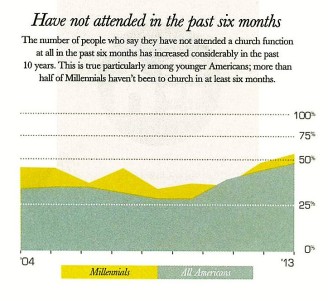4 | Be Isolated
(Four Ways to Be Easily Conquered, Pt. 5)
Strength in Numbers
Interesting fact: termites cannot digest wood. Instead, they rely on millions of microscopic organisms of over 100 different species living in their stomachs to digest the cellulose in the wood for them.
Termites require community to survive. A termite without its comrades starves to death, no matter how much wood it consumes.
This is not only true for termites. Humans, too, thrive in community and starve in isolation. While this may look different for different people (e.g. introverts suffocate on too much community but still need a network–albeit smaller, more selective network than extroverts–of deep, meaningful relationships), even a strong person, if isolated, is vulnerable and easily defeated.
This is evident in many areas of life.
Want to lose weight? A diet and workout plan coupled with determination can still be easily defeated in time. However, procrastination and compromise are less likely when the plan is done with a trainer, a partner or a group.
Likewise, addicts who participate in support or recovery groups have greater success of overcoming their addictions than those who attempt to fight alone.
Within helpful communities (specifically those whose members are intentional about contributing to each other’s well-being and success), a person finds strength, support, encouragement, counsel, accountability, and even very practical help (e.g. financial, physical, etc.).
Unfortunately, many are intentionally or unintentionally becoming isolated from these vital communities.
The Exodus from Church
The following info is from: Tyson, Jon. Sacred Roots: Why the Church still matters, part of Barna Group’s “Frames” series. (Zondervan), 2013; particularly pages 22-27.
It seems fewer and fewer Christians recognize the Church as God’s solution to our need for community. Research from a Barna Group study in 2013 exposed some disturbing trends.
More than one-half of American Millennials (born between 1981 and 2000; 15-34 year olds) and Gen-Xers (born between 1965 and 1980; 33-50 year olds) have not attended church or a church-related function in the last six months.
In fact, only 2 out of 10 Millennials believe church attendance is important. Of those who do go, only 1 out of 10 says they go because they believe the Bible says to gather with other believers.
Oddly, when asked what factors help Americans grow in their faith, church was not even named among the top 10 factors.
Compare these numbers to older generations–for instance, 40% of the Mature/Silent Generation (born 1927-1945; over 70) rating church as “very important”–and the decline is obvious. The practice of believers consistently gathering as a meaningful community is in jeopardy.
Some churches have responded by making their worship, sermons and resources available online. This addresses people’s need for solid biblical teaching but cannot forge human interaction. People have the need for both the content and the community of the Church, and options other than gathering with believers may satisfy the former but cannot satisfy the latter.
The result is much like a termite who eats plenty of wood but has no companions to help it digest.
The Reason to Bother
What’s the big deal? Is it really so bad to be withdrawn from consistent participation in a community?
Ask the antelope who is not careful to stay within the safety of the herd.
Ask the inhabitants of Laish.
The Danite scouts observed that the inhabitants “lived a long way from the Sidonians and had no relationships with anyone else” (Judges 18:7). We’ve already seen how their city was prosperous, well-fortified and suspecting no trouble, so why worry about relationships? Why do the extra work to maintain connection with surrounding peoples?
No doubt, relationships take time and effort and can be messy. So why bother?
Because attack and hardship will come eventually, and when it does, having no one to help will practically ensure defeat.
[The Danites] attacked them with the sword and burned down their city. There was no one to rescue them because they lived a long way from Sidon and had no relationship with anyone else” (Judges 18:28).
Gather Your Team
Just as a lion preys on the antelope who gets separated from the herd, so our enemy preys on those who are not connected to a helpful community.
We have already learned from Laish’s defeat about how to be victorious rather than victims.
The best investment in our security is not money, insurance, alarm systems, etc., but an intimate relationship with Jesus.
Keeping in mind that hardship is imminent, we must remain vigilant, disciplined and dressed in the full armor of God.
We must train ourselves not to rely on any luxury for contentment, most effectively by voluntarily denying ourselves what we crave most through the discipline of fasting.
And finally, we must cultivate “a herd,” a network of companions committed to each other’s well-being who will fight for one another, celebrate victory together, provide for each other, encourage, support and counsel each other.
This commercial perfectly depicts God’s design for how a community of comrades can literally mean the difference between defeat and victory.
[2013 Hyundai Santa Fe Big Game Ad: Team (Extended)]
Do you have a team, a herd, a community of people who have your back?
Parents, do your kids have that? Have you helped them develop, not just acquaintances or friends, but a community of peers and adults purposefully invested in their success?
If not, a great place to start is to find a local church with children and youth ministries, family/adult small groups and recovery groups. If you live in Lewisville, Flower Mound, Highland Village or any of the surrounding areas, Garden Ridge church of Christ would love to be that community for you and your family. Find out more at http://www.gardenridge.org. (Explore the “Ministries” menu for various groups to fit your needs.)
Tell Your Story
We would LOVE to hear what your helpful community means to you and how they’ve come through when you needed them. Please add a comment to share your story with us.







 People who are perceived to be more privileged evoke the envy of others who feel unfairly deprived, making them targets of hostility or theft.
People who are perceived to be more privileged evoke the envy of others who feel unfairly deprived, making them targets of hostility or theft.




